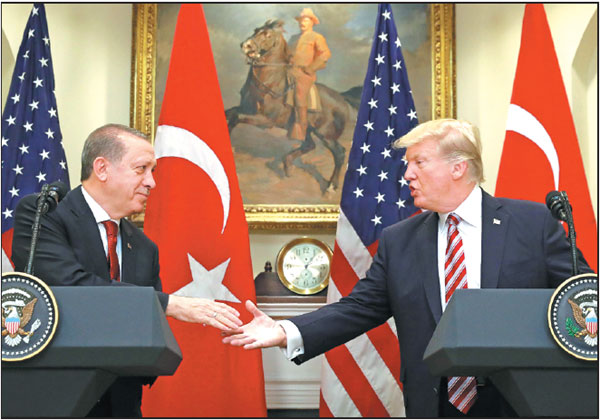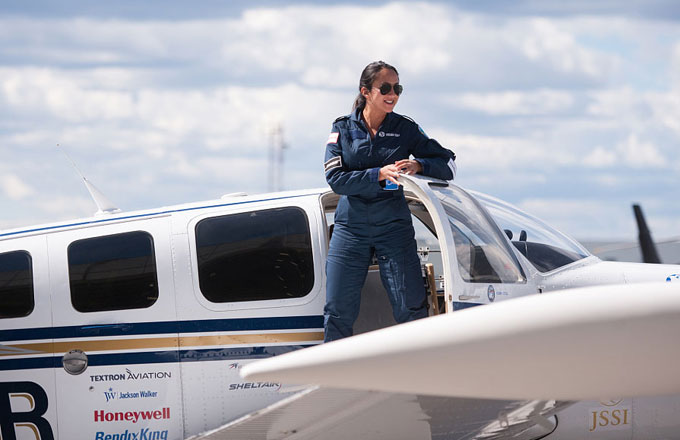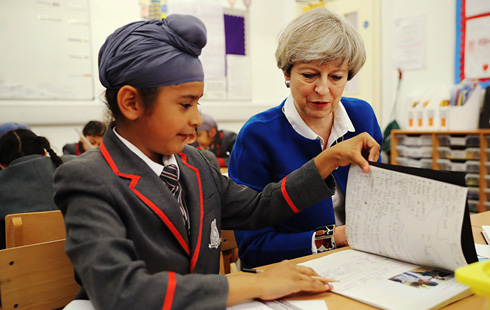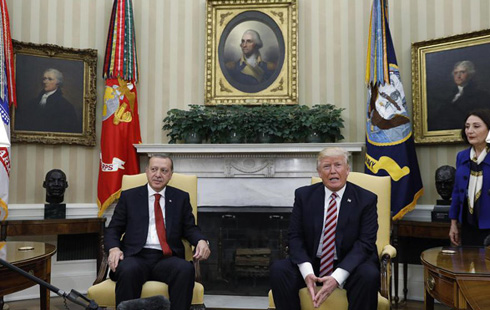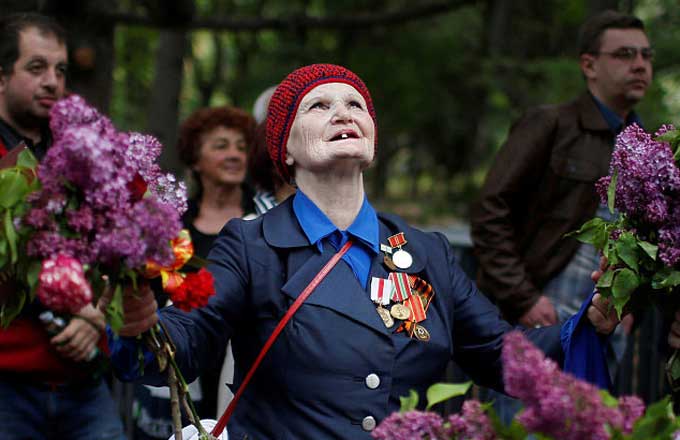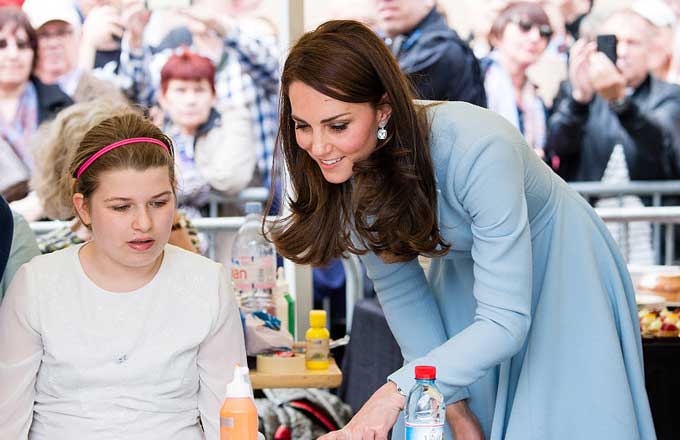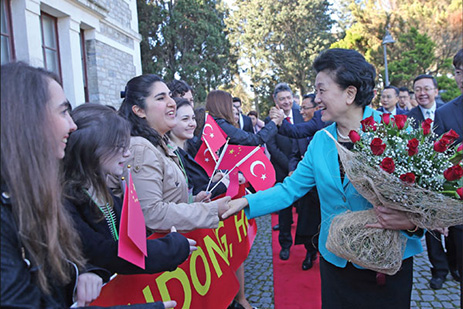US, Turkish leaders put best face on ties
|
Turkey's President Recep Tayyip Erdogan shakes hands with US President Donald Trump at the White House in Washington on Tuesday.Kevin Lamarque / Reuters |
WASHINGTON - Turkish President Recep Tayyip Erdogan told US President Donald Trump on Tuesday his country would not accept Syrian Kurdish fighters in the region but stopped short of directly criticizing a US decision to arm them.
At a White House meeting, Trump lauded Erdogan as an important ally in the "fight against terrorism".
"We've had a great relationship and we will make it even better," Trump said in their joint appearance.
Erdogan said his visit would "mark a historical turn of tide" and hailed "outstanding relations" between the nations.
It was an especially positive tone considering the tensions over Washington's decision to arm the Syrian Kurdish YPG militia that Ankara regards as an extension of the Kurdistan Workers' Party, or PKK.
US officials on May 9 disclosed Trump's approval of plans to supply the YPG as it advances toward the Islamic State stronghold of Raqqa in Syria.
Pivotal alliance
Turkey has been a partner in the US-led coalition against IS forces. The US alliance with Turkey has proved pivotal in the battle against the IS group in Syria, providing the coalition with access to Turkey's Incirlik air base to wage strikes against the militants.
Erdogan had pledged to use the White House meeting to try to get Trump to change course on the YPG. Ankara regards the YPG as an extension of the PKK, which has fought an insurgency in southeastern Turkey since 1984 and is considered a terrorist group by the United States, Turkey and Europe.
"We support Turkey in the ... fight against terror and terror groups like ISIS and the PKK, and ensure they have no safe quarter, the terror groups," Trump said, using an acronym for the IS group. "We also appreciate Turkey's leadership in seeking an end to the horrific killing in Syria."
The YPG, or People's Protection Units, effectively serves as the military of the autonomous Kurdish-led regions that emerged in northern Syria with the retreat of state authority in 2011 that accompanied the outbreak of civil war.
The US sees the YPG as distinct from the PKK and as a valuable partner in the fight against IS extremists.
Erdogan's visit was further complicated by Turkey's calls for the US to extradite Turkish cleric Fethullah Gulen, who has lived in self-imposed exile in Pennsylvania. Erdogan blames Gulen supporters for an attempted coup last year. Gulen has denied involvement.
Reuters




